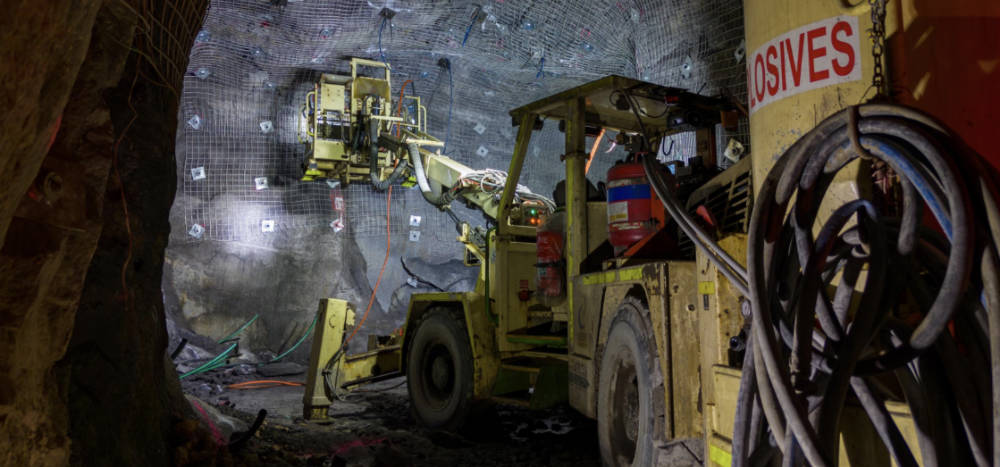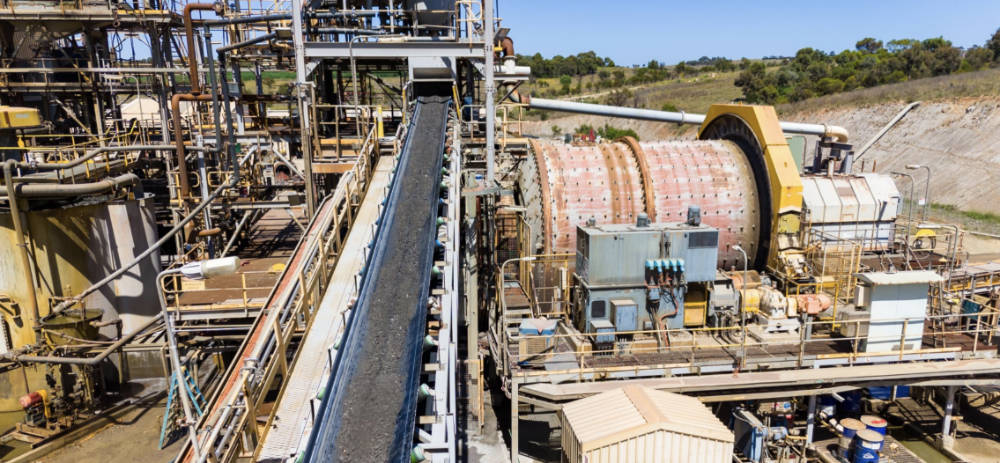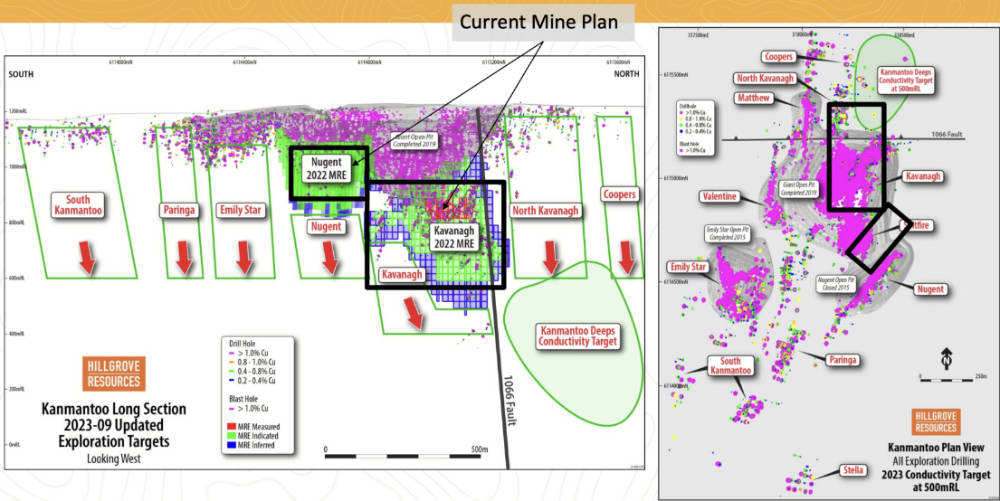Kanmantoo restart proves Hillgrove’s developmental credentials, now to build mine life and copper production
Mining
Mining
Copper demand is widely expected to grow as the global push towards decarbonisation requires greater electrification of the economy which in turn will require growing quantities of the red metal.
Bloomberg Intelligence flagged late last year that an additional 6 million tonnes of copper capacity could be needed by 2032 to fill demand but despite this, there is a definite paucity of new copper production being brought into the market – whether it be through the development of brand new projects or bringing mothballed projects back online.
This places Hillgrove Resources (ASX:HGO), which has just produced first copper concentrate from its Kanmantoo underground operation – previously a producing open pit mine – in South Australia, in rarefied company indeed as one of very few ASX companies to achieve this milestone.
While production is only just ramping up, the project aims to produce between 12,000-15,000t of copper per annum with a current mine life of four years.
Not only will it contribute to the immediate community around the mine site, it will also contribute to the South Australian economy, for which the resources industry contributes $1 in every $12 of its gross domestic product.

Speaking to Stockhead, chief executive officer Lachlan Wallace said first copper production was a significant milestone for the company.
“Starting copper production from Kanmantoo not only marked our transition from explorer to producer generating cashflow, it also demonstrates our team’s capability to deliver copper projects on schedule,” he said.
“And this bodes very well as we ramp up production further at Kanmantoo and then seek to grow the business through additional exploration and development opportunities.”
HGO ran an open pit operation at Kanmantoo from 2010 to 2020, producing ~137,000t of copper and ~55,000oz of gold before the 3.6Mtpa process plant and tailings storage facility were placed on care-and-maintenance.
Wallace pointed out that at that time, while the company knew that the lodes mined in the open pit continued at depth below its base, they didn’t know how far they went.
“So, we did a modest program of initial drilling and quickly identified that below the main pit, we had a million tonnes of resources,” he said.
“On the back of that, we carried out additional drilling campaigns and that led to the development of a relatively short four-year mine plan, which we funded in mid-2023 and within eight months we were producing copper concentrate.”
The company’s rationale for proceeding with the development of the Kanmantoo underground operations stems from simple economics.
While maintaining the processing plant in a manner that will allow it to be restarted for a relatively low capital cost and rapid turnaround is undoubtedly a major positive from a development standpoint, it doesn’t come cheap.

Wallace noted that maintaining a significant 3.6Mtpa plant in great condition required HGO to fork up some $5m per year in both corporate administration and care & maintenance costs.
This prompted the company to focus on creating a fundable mine plan, which had to have a minimum mine life of four years, as quickly as possible.
“And that is exactly what we have achieved with this first stage of the Kanmantoo project and now we begin to look ahead to how we grow the mine plan further as well as look to increase the annual copper production,” Wallace added.
There is plenty of scope for production growth at Kanmantoo as just 40% of the plant’s capacity is being used while the tailings storage facility has far more capacity than required for the current mine plan.
“With the majority of our costs being fixed in nature, any additional copper tonnes that we feed into the plant will be done without any additional processing Capex, however they will have an outsized impact on free cash flow generation,” Wallace said.
“So that’s a real value opportunity that we can capture for the business.”
And where will HGO find those additional copper tonnes?
The company has already defined an exploration target of 60-100Mt @ 0.9-1.2% and 0.1-0.2g/t gold immediately around the processing facility.
A significant part – 50-80Mt @ 0.8-1.2% copper and 0.1-0.2g/t gold – of this is concentrated within the intriguing Kanmantoo Deeps zone could be a repeat of the entire Kanmantoo copper-gold deposit just 400m from the decline.
There are also nine lodes within the mining lease that remain open at depth and along strike.

Wallace said the limited mine life is really due to drill density and that it anticipates more drilling to deliver more resources and increase mine life.
“Since 2019, we have drilled 139 holes and we had 163 intercepts of significant grade and widths of copper and gold,” he added.
“Basically every time we run a drill program, it’s translated into a material increase in resources.
“I fully anticipate that as we drill more, we hit more, and the mineral resource grows accordingly.”
He noted that while the company had previously been prioritising getting Kanmantoo back into production, it was now shifting its focus to growth.
Besides Kanmantoo, HGO also holds ~6,500km2 of exploration ground in South Australia’s southeast that includes several projects that the company would like to follow-up on.
“There have been relatively early stage geophysical and geochemical surveys,” Wallace said.
“However because of the location of the Murray River, most of the areas are under the Murray River sediments. So, we will need to undertake some drilling.
“In the event of a success on our more prospective success, the resulting size, scale and tenor of those deposits will determine whether they can be trucked back to Kanmantoo.”
These exploration assets are connected to Kanmantoo through both Highway 1, the main highway between Melbourne and Adelaide, as well as the main rail freight line between the two cities.
Regardless of whether HGO increases Kanmantoo mine life and production through testing the nearby exploration target and/or developing its other exploration assets, any additional copper output will likely be welcome.
Dropping copper head grades across the world mean that more production and mining capacity is required to produce not just the same amount of copper, but to meet the expected material increase needed to meet the energy transition.
Wallace believes that a copper price rise would be needed to ensure that supply can rise to the challenge, a point backed by Goldman Sachs analysts who forecast that the red metal would need to rise as high as US$13,000/t.
“I think the world is going to need and value every scrap of copper that they can get their hands on and Kanmantoo is part of that global story,” he added.
At Stockhead we tell it like it is. While Hillgrove Resources is a Stockhead advertiser, it did not sponsor this article.